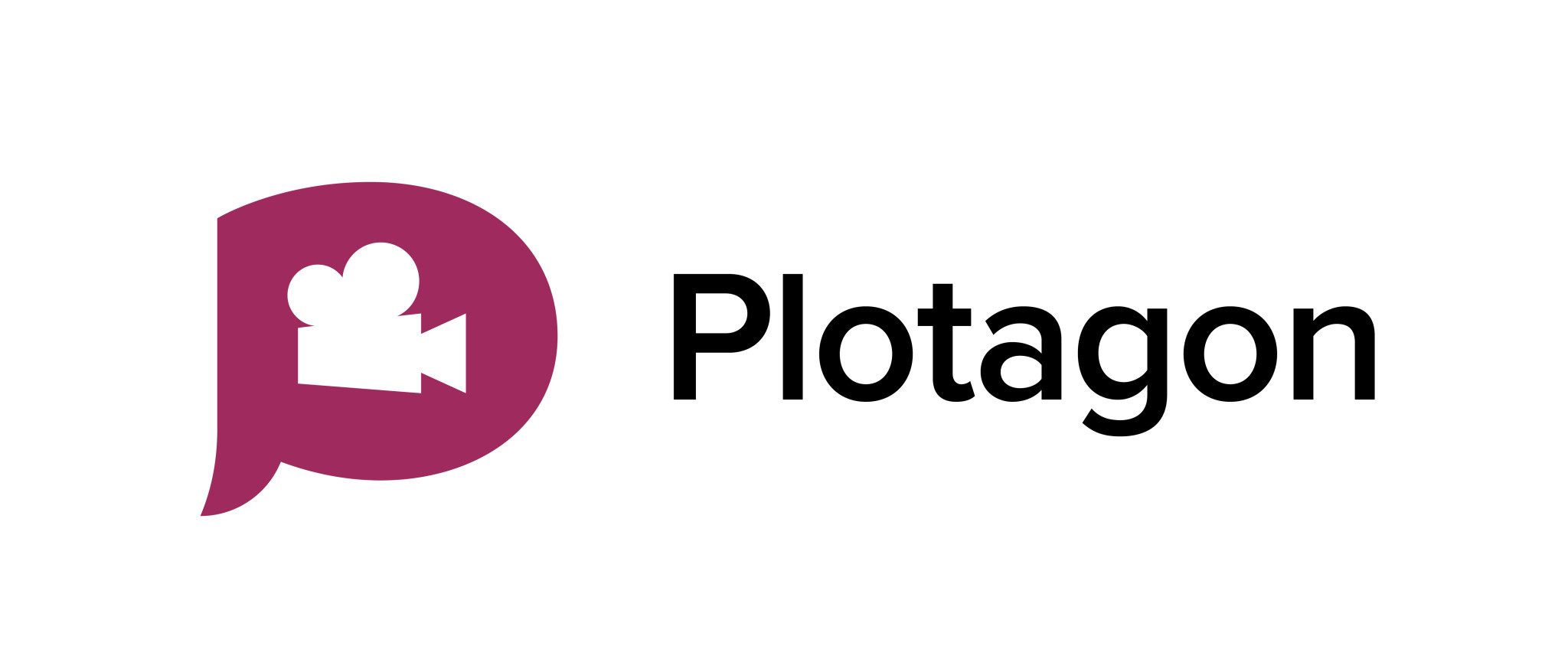Section outline
-

Welcome to the Course Art of Living: For Exploring the Beautiful World:
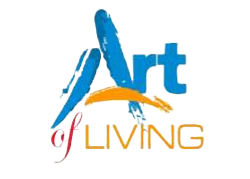
Art of Living is such a thing that makes our lives to a master piece of Art. It refers to the capabilities for leading a good life and this capabilities comes close to the men and women through positive thinking, ethical living and so many others. It has been perceived from the different evaluations that intellectual ability needs to be exercised in an effective way through scheduled practice and performance.
Success comes not just from the knowledge and skills but also from behavior which can create distance between success and failure. And we can achieve expected behavior only by learning and unlearning ways of thinking that finally craft body language and ensure effective living in this beautiful world.
-

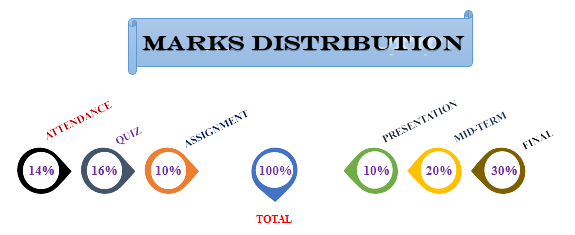
-
General Guidelines
1. Students must go through lecture wise materials and videos before joining an online live discussion.
2. Students are requested to provide feedback through "Feedback Form" after completing each chapter to participate in the review session.
3. Students can participate in the "Discussion Forum" for every chapter.
4. Students are requested to complete the "Entry Ticket Questionnaire" form to introduce themselves.
5. BLC participation is a part of the Students' Assignment. Students are requested to take care of it.
6. Students are requested to contact the Course Facilitator for any kind of assistance regarding the course.
-
-
Objectives of the course:
The Objectives of this course are –
- Self Confidence: All learners will have a strong belief that we all are inborn genius and that any dream is possible to achieve to create a difference.
- Boldness: They will become strong with critical thinking & creativity to accept the unacceptable in the face of unavoidable challenges in daily life.
- Equity with Empathy: They will have fundamental human & life skills including conscious self-awareness to learn and find how to do things in an empathetic and equitable way - a way that pleases the Creator.
- Questioning: They will not hesitate to ask any question to unleash inner genius and the genius of local & global collectives, towards building a Just Daffodil, Bangladesh, and World.
- Values: Learners will set, feel, and realize core human values and act with or reflect those in their daily life.
- Learning to learn: They will learn how to learn & will be able to criticize themselves.
- Peace & Mutual Happiness: All learners will achieve Emotional Intelligence (EQ) to create harmonious relationships with parents, family, friends & community in order to experience a good, peaceful, and mutually happy life.
Final Outcomes
At the end of the semester SWBAT (Students Will Be Able To) –
- SWBAT know the necessity of Questioning, How to question, core values, and theories on goal setting for life.
- SWBAT create empathy, broaden the conception of people, moral concern, a sense of honor and decency, and strengthen responses to unjust conditions.
- SWBAT make humanitarian qualities as the basic tools for enjoying the journey from “I” to “We” to promote effective living in this precious world.
- SWBAT achieve competency to cope with a rapidly changing world considering university as a place and platform to create knowledge and skills for their meaningful survival.
- SWBAT set her/his own goal for life with core values and can break down big goals into short term attainable goals.
- SWBAT evaluate situations & problems and can act as a resilient with an empathetic and equitable way
-

-
আত্ম মূল্যায়ন মানুষের মনুষ্যত্ব বিকাশের চিরন্তন পথ। এ পর্যায়ে এই মূল্যায়ন পর্বটি একান্তই আপনার নিজের জন্য। এটির মাধ্যমে আপনার কোন জয়-পরাজয়, প্রাপ্তি বা ক্ষতির সম্ভাবনা নেই।
মনের কাছে সৎ থেকে উত্তর দেবার জন্য বিনিত অনুরোধ রইল
-
-


This introductory chapter is to engage students in divergent thinking and involve them in a thought process or method used to generate creative ideas by exploring the most possible solutions.
Objectives:
- To motivate the students' minds for cherishing a new way of thinking for a better living.
- To understand the definition of the Box and Out of the Box.
- To find out the reason for staying inside the box or Comfort Zone.
- Explore the necessity of Coming Out Of The Box.
- Explore the ways of Coming Out of the Box.
Outcomes:
At the end of the Chapter SWBAT (Students Will Be Able To) –
- Understand the definition of the Box and Out of the Box.
- Understand the relationship between the Box and our subconscious mind.
- Get an overview of staying inside our comfort zone.
- Have a clear knowledge about the necessity and the ways of coming out of the box.
-
-
You can share your learning here or you can start any discussion topic.
-


Objectives:
- To prepare students ready to learn meaningfully with a proper understanding of the importance of unlearning in learning for continuous growth besides traditional learning.
- To create a synergy of learning and unlearning for effective development and living.
- To create the ability to glean knowledge and skills from reading, watching, and analyzing to make the learning circuit functional.
Outcomes:
At the end of the chapter, students will be able to -
- Learn the necessity of Learning to Learn.
- Know the process of Learning to Learn.
- The definition of Learning to Unlearn.
- Know the things which need to be Unlearnt.
-


This chapter will cover the basics of parenting, relationship, and values of empathy, the relationship that we can’t ignore in living in this beautiful world. Moreover, the socio-economic condition of the country where opportunity cost is very high for many of the parents in creating children’s futures will be focused.
Objectives:- To understand parenting and their empathetic bondage by extracting from past, bearing present, and exploring future by involving them directly
- To uphold self-esteem, confidence, and self-driven quality for evolving leadership quality.
- To know about Self-Guardianship and its impact on personal life.
Outcomes:
At the end of the Chapter SWBAT (Students Will Be Able To) –
- Understand the process of conscious parenting and its impact on the child.
- Realize the necessity of Self-Guardianship and learn the steps of it.
- Recognize the values of empathy, a relationship that we can’t ignore in living in this beautiful world.
- Participate in interactive discussions in the presence of parents or legal guardians.
Know their parents deeply for creating an emotional and professional bridge between parents and their sons/daughters.
-


If we think about learning to have two components: one that leads to tool building (information and knowledge) and another that leads to wisdom and transformation (subjective learning), unlearning is an extraordinarily important component of the second kind. So the phrase 'learning to learn’ is more closely related to unlearning though the focus is 'freeing from what we have learned’ that keep someone non-judgmental in learning and de-learning.
OBJECTIVES:
- To understand society and its role in developing behavioral and humanitarian quality at the individual level.
- To create synergy among personal, social, and global professionalism in relation to etiquette and behavior.
- To understand the basics of professional etiquette stands on the ethics of respecting every individual in their workplace and displaying well-mannered behavior in business interactions.
- Understanding professional etiquette can have a long-lasting and fantastic impact on professional life; be it someone’s personal career growth or a business-related company.
OUTCOMES:
- At the end of the Chapter SWBAT (Students Will Be Able To) –
- Learn basics about behavioral sciences in relation to humanitarian quality which finally contributes to exploring successes.
- Learn and practice different tips about etiquette, behavior, and professionalism.
- Understand the culture of the workplace and thus, it becomes essential to follow some basic professional etiquette.
- Get the knowledge on different etiquette like Conversation Etiquette, Email Etiquette, Dining Etiquette, Dressing Etiquette, General Etiquette, etc.
- Practice some etiquette through assignments and other activities.
-


Self Esteem is considered an important component of emotional health; self-esteem encompasses both self-confidence and self-acceptance. Experiences at home, at school, and with peers can all build or diminish a child's self-esteem. Psychologists and child-care authorities who write about self-esteem generally, discuss it in terms of two key components: the feeling of being loved and accepted by others and a sense of competence and mastery in performing tasks and solving problems independently. In order for youth to feel good about themselves, they must feel that they are able to do things well.
Objectives:
- To learn efficient lifetime performance by developing social, ethical, and intellectual abilities depending on practical needs.
- Explore the possibility of becoming self-guardian or director to face unpredictable or unscripted life and living.
- To know the definition and the categories of Self Esteem.
- ·To understand the ways of identifying High Self Esteem and Low Self Esteem.
Outcomes:
- Know that we will be much happier and more effective people if we can take the time and the energy to understand who we are and how people know us!
- Practice that it is important that more you are becoming aware of how your actions affect others, now and in the future, and then more you will be able to effectively communicate and motivate.
- Know that anyone can build or can change careers several times if he/she can grow and try to create positive change in the world.
-

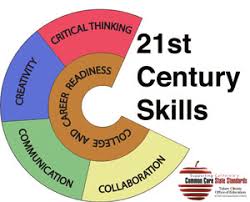
Objectives:
- To know the changing scenario of personal and professional surroundings.
- To get touched with the different skills of 21st Century.
- To know the process of achieving the skills of survival in the 21st Century.
Outcomes:
At the end of the chapter, students will be able to -
- Know the different skills of the 21st Century.
- Achieve the skills of survival.
- Focus on “Smart Work” and “Hard Work”
-
-
Please go through the videos and the resources of the Chapter and Answer the Questions.
Deadline: 5/10/2022
-


Objectives:
- To achieve quality for becoming “Ideal Self” or “how you would like to be” in the real-life setting
- To become a self-evaluation expert and developmental
Outcomes:At the end of the Chapter SWBAT (Students Will Be Able To) –
- The definition and importance of Impression Management.
- The way to improve Impression Management.
- Know the variables of Impression Management.
-

OBJECTIVES:
• To develop an effective style of living skills among young people for lifetime growth
• To achieve self-guardianship
Contents to be covered:Different era styles of living, tips for youthful living, managing stress, meditation, and holistic mindfulness for joyous living.
Overview and Rational:For developing an adequate style of living someone must go through continuous self-evaluation and development. For continuous growth and development, thoughtfully designed self-evaluation procedures are needed in relation to youthful living, stress management, and meditation.
This chapter is to provide skills for student involvement in assessment decision-making, that elicit student cognition about their performance.
It is also important to introduce a rational way of thinking among young people when the market is trying to maximize their profit by any means including promotion of beyond capacity consumption, commoditization of friendship and relation, depression, etc. -

Objectives:
- To learn about mind mapping and practice in daily life and living with an objective to think and remember better
- To learn about creative problem solving and action in need.
- To know the importance of Mind Mapping
Outcomes:
- At the end of the chapter, students will be able to -
- Prepare different types of Mind Map
- Use Mind Map for their different types of activities.
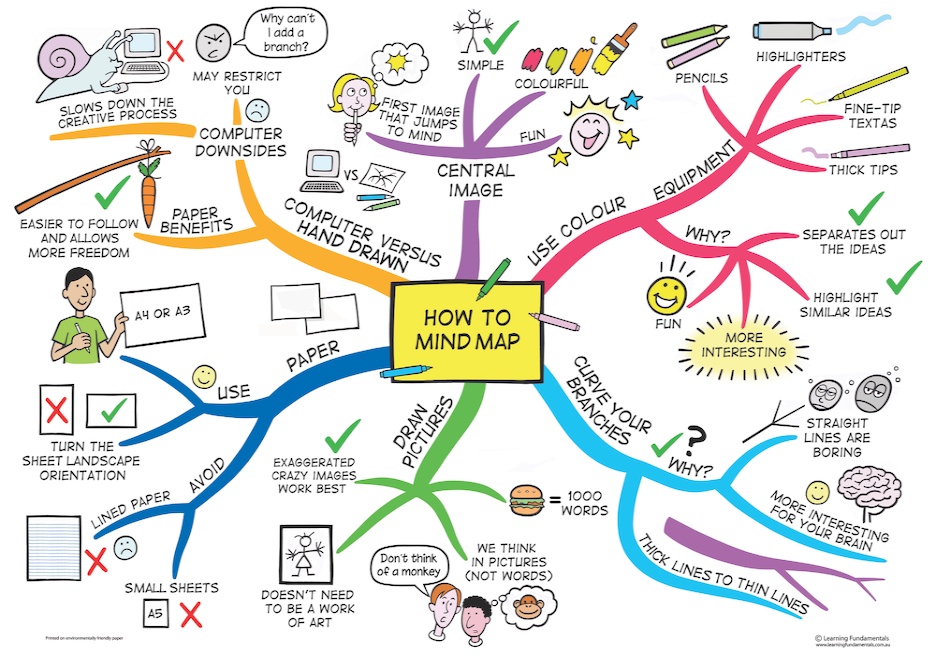
-


Objectives:
- To transform failure into success in life treating failure as an opportunity for learning, growth, improvement and transformation.
- To remove pillars of failure.
Outcomes:
- Students will be able to identify their failures, will investigate the reasons behind the failures & learn to find the ways to break pillars of failure.
- They will learn to accept their failures rather than feeling guilty or showing excuses.
- By sharing experiences and observing case studies they will be able to understand there are many more people living who have reached the triumph of success only by learning from failures. This will help the students to build trust in themselves.
Practice
Here are the steps to help you embrace and transform failure and use it as the path to success. See how FAILURE = Success!
- F - stands for forget
- A - stands for accept
- I - stands for investigate
- L - stands for look and Learn
- U - stands for understand
- R - stands for re-evaluate and rejuvenate
- E - stands for entrust
Finally, it needs to be kept in mind that life is a marathon, not a short race! Above all, take it lightly. We all fail, all the time, not getting what we want offers opportunities to learn and develop. It’s not avoiding failure that creates success; it’s what we do with the learning that counts. Finally, discovering new math in life that can be expressed like “failure = success”. For success you also can keep a quotation in mind “you have to pay in full, otherwise, life will be painful’.
-


Objectives:
- To understand the Importance of neurological and psychological development for Body Language and Personality Development among young people.
- To develop a systematic approach to education in socio-economic transitional phases of the world when education is a basic human right, but it is also a response mechanism for protection and fulfillment of needs of the time. Objectively a well-organized learning environment with a caring mode may be the best way of reducing the effects of traumatic experiences (if any) and help rehabilitate individuals and communities as per need through proper psychosocial support.
- To realize how body language is best defined as a non-verbal form of communication shown through facial expressions, gestures, posture, and body movements, says a lot about one’s personality.
Outcomes:
- Students will learn how to show empathy towards the persons needed and rehabilitate them.
- Students will understand the need for psychosocial support as sincere citizens.
- Students will learn the possible ways to develop the desired personality.
-

Objectives and Outcomes:
- To transform conceptual learning into action
- To facilitate and enhance relationships within the locality, county, and region.
- Contents to be covered
- Mostly basic dynamics of community and industry relationships will be discussed and practical assignments to make students capable to deal it. Field visits including industry, community and hard to reach areas will be part of it in regular basis.
-


Objectives:
- To reorganize young people on time and financial management from a practical point of view.
- To create feelings about time and money simultaneously in relation to successes.
Outcomes:
- Students will understand the benefit of punctuality and savings.
- Students will be able to find out the options of financial management and strategies to overcome procrastination. There are many adults as well as young people who often face one problem that is time management. Putting off large, chunky assignments till the last very few minutes thus not able to complete the task given or simply rushed through it to get it done can affect all the things from one's result at work, to a students' grades in college/universities.
However, there are ways to end the situation, which can improve the student's time management skills. This chapter will explain how many steps are needed for most people to take in order to improve their time management skills.
Same time it’s needed in “managing money”, which we call financial management. It notices clearly that a number of students don’t know how to manage parent’s money for building a bright future rather spending without empathy. A good number of students are also trying to earn themselves but failing in managing in some cases. This chapter will help them to learn the same meaningfully.
Finally, it will focus on the synergy of time and money issues for effective living throughout the lifetime.
-


Objective:
- To understand a career plan from a wider perspective.
Outcomes:
- Students will learn to find out their expertise.
- Students will explore diverse career plans suitable for them.
- Students will be motivated to become divergent thinkers while planning their careers.
Content to be covered:
It will cover the Career Plan, understanding life, and living in this beautiful world. Moreover, knowing about how people will be missing you at every step rather than treated as a burden.
Overview and Rational:
As career is perceived very differently by each individual selected contents and tips will lead to the understanding that career planning is not just finding a job or earning a handsome amount of money.
Career planning is an activity that is best done on a regular basis, especially given the data that the average worker will change careers (not jobs) multiple times over his or her lifetime. And it's never too soon or too late to start your career planning but better to start soonest once someone can realize.
Contents and practices will be focused where it seems that career planning is not a hard activity, not something to be dreaded or put off, but rather an activity that should be liberating and fulfilling, providing goals to achieve in your current career or plans for beginning a transition to a new career. Hope this chapter will be able to create confidence that career planning should be a rewarding and positive experience.
A practical session will be conducted to learn using free web resources and developing everyone’s personal website disseminating past, considering today, and portraying tomorrow’s need. -

Objectives:
- To enable students to live a happy healthy life, in harmony with self & family, society & nature.
- To ensure a tangible change in student's thinking in terms of their vision about happiness, prosperity and improvement in human relationships.
- To understand the ultimate role of education in transforming a man or a woman into a human being.
- To facilitate a holistic development perspective among students towards life, profession and happiness, based on correct understanding of human reality and the rest of the Existence. Such a Holistic perspective develops the basis of value-based living in a natural way.
- Basic understanding of universal human values & ethical human conduct.
- Relationship between values and ethics.
- Values in higher education and professionalism.
Outcomes:
- Students will be motivated to practice universal human values.
- Students will be able to realize the ultimate truth that- A good professional may not be a good human being and can be hated by people BUT A GOOD HUMAN BEING will be a good professional, and be loved by all.
-


Syllabus for 1st Quiz
- Coming Out of the Box
- Learning to Learn
- Parents, Life, and Living
- Etiquette
- Transforming Failure into Success
Exam Date:
Exam Time:
-

In order to get some guidance for your Assignment, please take a look at the following video.
-

Syllabus for MID-TERM Exam
- Coming Out of the Box
- Learning to Learn
- Parents, Life, and Living
- Etiquette
- Transforming Failure into Success
- Impression Management
- Time Management
-

-
- Self Esteem
- Essential Skills for 21st Century
- Mind Mapping
- Universal Human Values
- Career Plan
- Psycho-social Support
-
- Coming Out of the Box
- Learning to Learn and Unlearn
- Parents, Life, and Living
- Time Management
- Transforming Failure into Success
-

